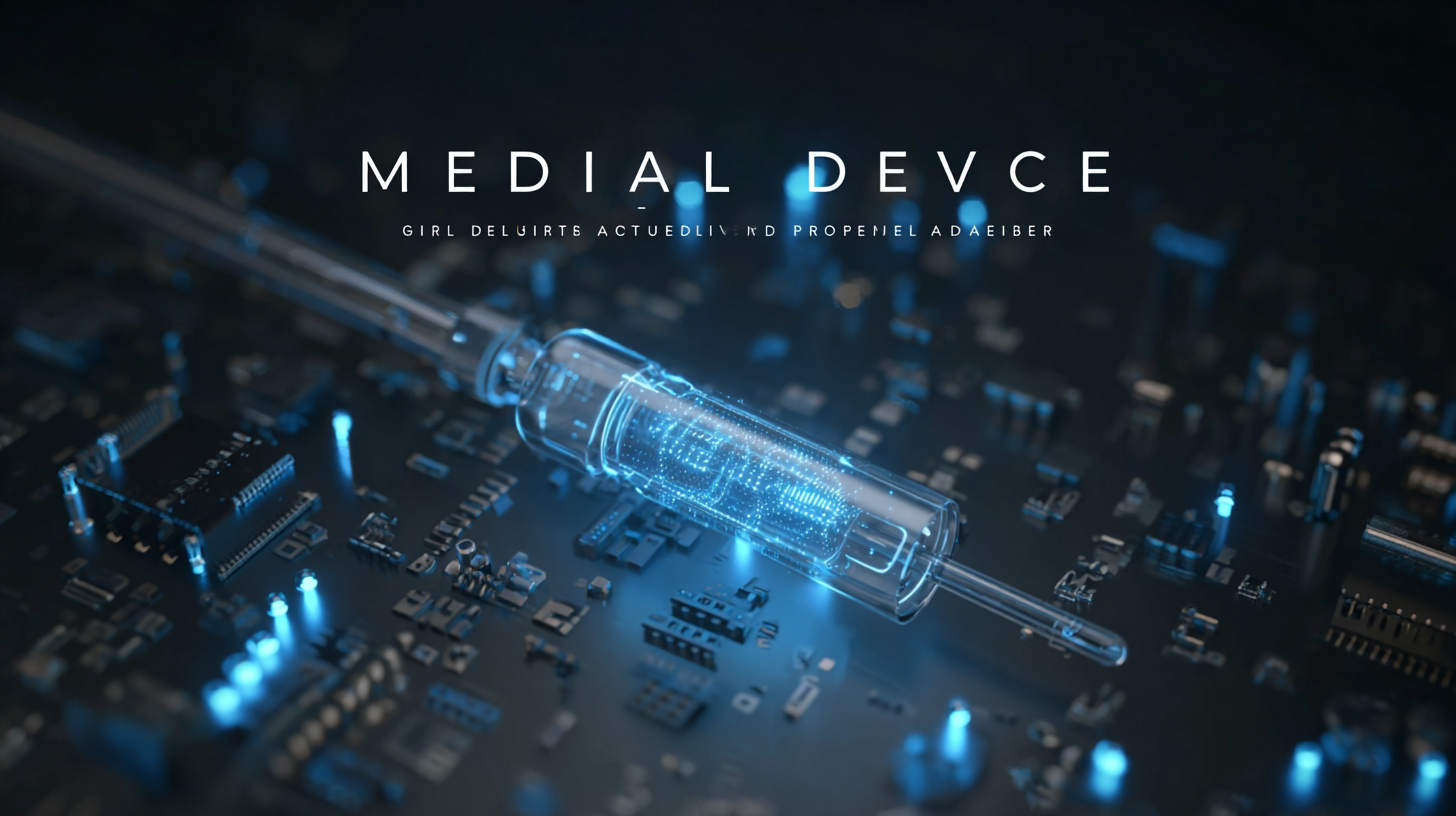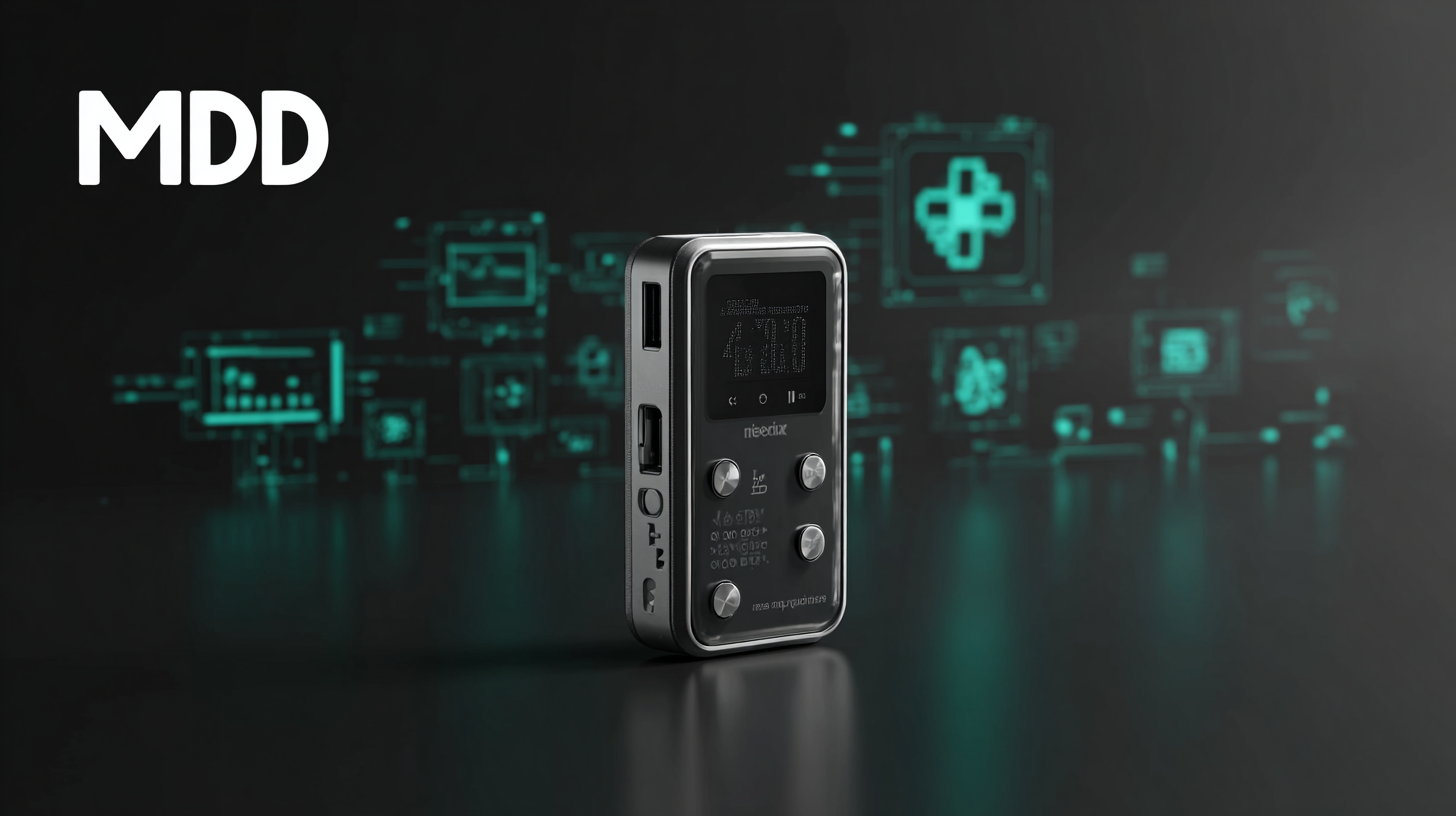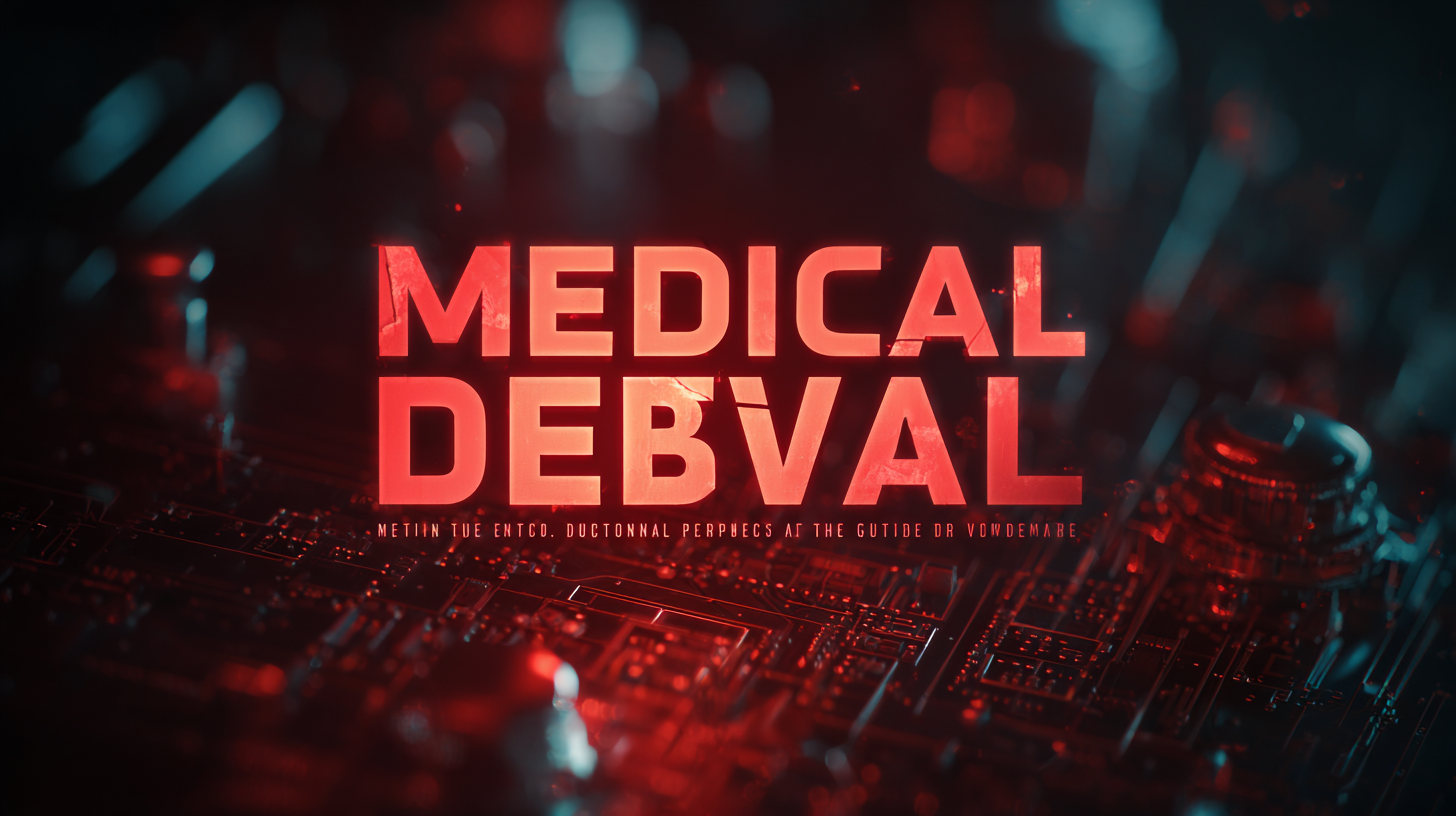In the rapidly evolving healthcare landscape, the importance of medical device adapters has become increasingly evident; they serve as vital connectors ensuring interoperability among various medical devices. According to a recent report by Grand View Research, the global medical device connectivity market is projected to reach a staggering USD 4.6 billion by 2025, with a compound annual growth rate (CAGR) of 28.7%. This surge underscores the critical role medical device adapters play in enhancing the efficiency of healthcare delivery and improving patient outcomes.
 By enabling seamless communication between devices, medical device adapters not only optimize clinical workflows but also contribute to cost reductions, making them indispensable for global buyers seeking to innovate and elevate their product offerings. As we delve into the advantages and technical specifications of the best medical device adapters available, it becomes clear that these components are unlocking unprecedented potential in medical technology.
By enabling seamless communication between devices, medical device adapters not only optimize clinical workflows but also contribute to cost reductions, making them indispensable for global buyers seeking to innovate and elevate their product offerings. As we delve into the advantages and technical specifications of the best medical device adapters available, it becomes clear that these components are unlocking unprecedented potential in medical technology.
The rise of Chinese medical device adapters in global markets illustrates a significant trend in the healthcare sector, driven by technological advancements and increasing demand for reliable healthcare solutions. According to recent reports, the global USB Type-C market is set to expand significantly, with forecasts suggesting robust growth across various applications, including medical devices. This growth is largely attributed to the need for efficient connectivity solutions that are compatible with emerging medical technologies. As healthcare providers seek to enhance their operations through innovative devices, the role of medical device adapters becomes paramount, paving the way for Chinese manufacturers to step into the spotlight.

Moreover, the telecommunications sector's evolution, supported by the expansion of 5G and early developments in 6G, creates a favorable environment for the integration of medical devices with advanced communication capabilities. The ongoing demand for efficient, high-speed connectivity in healthcare settings aligns seamlessly with the rise of e-Pharmacy and telehealth solutions, encouraging consumers to embrace new ways of accessing healthcare. This confluence of technology and healthcare is positioning Chinese medical device adapters as vital components in enhancing patient care and operational efficiency on a global scale. As the market evolves, the focus remains on unlocking the potential benefits these adapters offer to both manufacturers and end-users alike.
When considering the purchase of medical device adapters, international buyers must prioritize key features that ensure efficacy and compatibility. A recent report indicates that the global market for medical device adapters is expected to reach over $7 billion by 2025, highlighting an increasing demand driven by technological advancements and the need for cross-border compatibility in medical equipment. Top-quality adapters not only facilitate interoperability but also enhance the performance of devices in diverse environments and healthcare settings.
One crucial aspect to consider is regulatory compliance. According to industry standards, quality adapters must meet stringent safety and efficacy criteria to ensure they operate effectively with varying electrical systems worldwide. Moreover, durability and materials used in manufacturing significantly impact the longevity and reliability of these devices. Research shows that medical facilities using high-quality adapters report a 30% decrease in equipment malfunction rates, thereby improving overall patient care and operational efficiency. Ensuring these key features are considered will help international buyers make informed decisions that unlock potential in their medical practices.

The rise of Chinese manufacturing has drastically improved cost-effectiveness for global healthcare professionals, particularly in the realm of medical device adapters. According to a report by Grand View Research, the global medical device market is expected to reach USD 575.3 billion by 2028, with a significant portion attributed to cost-efficient manufacturing techniques. Chinese manufacturers leverage advanced technologies and economies of scale, reducing production costs significantly. This allows healthcare providers worldwide to access high-quality medical adapters at a fraction of the price, enabling a broader implementation of life-saving devices in various healthcare settings.
Furthermore, studies indicate that healthcare professionals who utilize Chinese-made medical device adapters report an average cost savings of 25-40% compared to counterparts sourcing from Europe or North America. This reduction in expenditure is particularly crucial for emerging economies where budget constraints can limit access to essential medical equipment. With reliable products that meet stringent safety standards, such as ISO 13485 certification, Chinese manufacturers are not only enhancing the affordability of medical devices but are also ensuring that quality and efficacy are not compromised. These advancements provide global buyers with the opportunity to optimize their spending while improving patient care outcomes.
In the realm of medical device adaptation, quality assurance is paramount, especially for international buyers seeking reliable solutions. China has emerged as a key player, delivering innovative medical device adapters that meet stringent quality standards. The rigorous manufacturing processes and adherence to regulatory requirements establish a foundation of trust, allowing global partners to feel confident in their investments.
Tips for selecting a reliable medical device adapter include evaluating the manufacturer's certifications and quality control measures. Look for companies that not only comply with international standards but also have a proven track record of delivering high-performance products. Additionally, engaging with suppliers who offer transparent communication and detailed product documentation can enhance the purchasing experience, ensuring you are well-informed about the devices you are acquiring.
As we navigate advancements in technology, particularly the integration of AI into various sectors, it is crucial to remain aware of how these innovations may influence medical device adaptation. The synergy between human expertise and AI capabilities can lead to remarkable efficiencies, ultimately improving healthcare outcomes. Embracing this evolution enables the medical community to leverage the strengths of both, paving the way for enhanced patient care and operational excellence.
| Adapter Type | Compatibility | Material | Quality Assurance | Price Range (USD) |
|---|---|---|---|---|
| Standard Adapter | Universal Compatibility | Medical Grade Plastic | ISO 13485 Certified | 15 - 25 |
| Wireless Adapter | Bluetooth & Wi-Fi Enabled | Aluminium & Plastic | CE Marking | 50 - 80 |
| USB Adapter | USB-Compatible Devices | PVC | ROHS Compliant | 10 - 20 |
| Custom Adapter | Specific Device Models | Custom Materials | Full Product Testing | Variable |
| Portable Adapter | Travel Size | Durable Plastic | FDA Approved | 30 - 45 |
Navigating the complex landscape of medical device regulations is crucial for global buyers looking to distribute innovative healthcare solutions. Each country has its own regulatory framework, which can vary significantly in terms of requirements and processes. Understanding these regulations not only ensures compliance but also accelerates the time to market. Buyers must familiarize themselves with the specific standards applicable in their target markets, including certifications from bodies such as the FDA in the United States or CE marking in Europe. This preparation can significantly reduce the risk of delays and pitfalls in the approval process.
Moreover, partnering with reliable medical device adapters that understand these regulatory nuances can provide a strategic advantage. These adapters don't just facilitate compatibility with different medical systems; they also assist in navigating the labyrinth of compliance documentation and testing protocols. By leveraging the expertise of these adapters, global buyers can streamline their operations, ensuring that their devices are not only safe and effective but also compliant with international standards. This proactive approach to regulation ultimately enhances trust among consumers and healthcare providers, paving the way for successful market entry and sustained growth.
